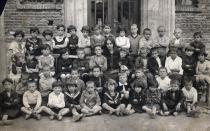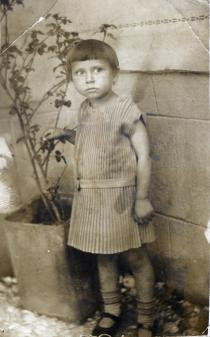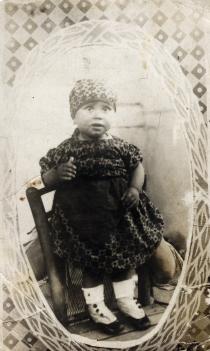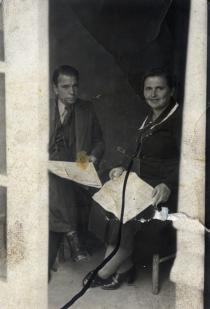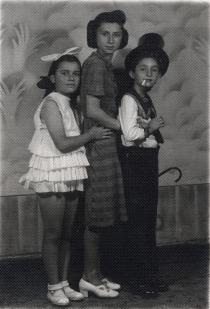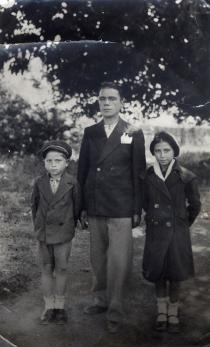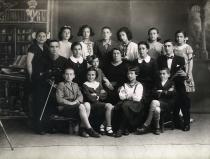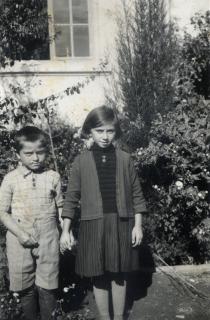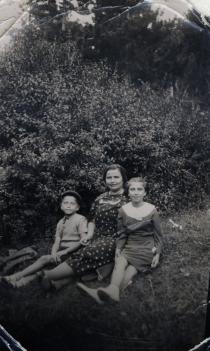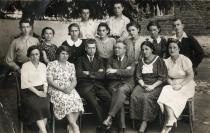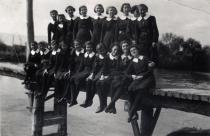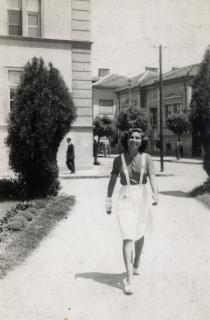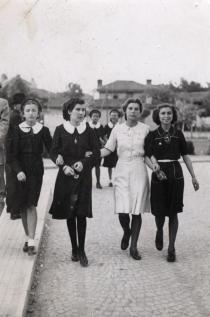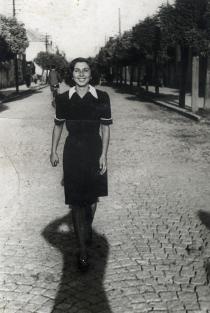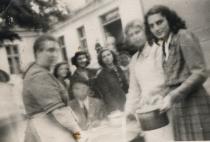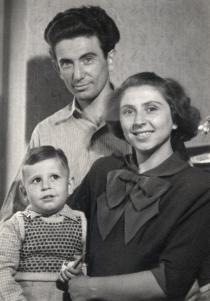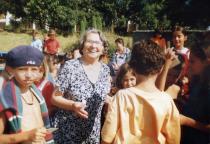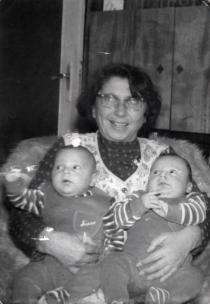Here I?m the first on the right with some classmates ? Bulgarian girls from the school in Pazardzhik. Next to me is Ganka, and Lyubka has taken hold of her. I don?t know the girl on the left. The year was 1943. I?m wearing my ball dress ? blue with a white belt. The badge [yellow star] is on the left side of the dress. We are on our way to Varosha. It was a place forbidden for Jews but my classmates convinced me that I was safe with them.
The principal, Hadzhitodorov, liked me very much, too, may be because he taught Psychology, Logics and Ethics. Our Literature teacher liked me very much, too. Just imagine the situation: I'm in the fourth grade, into the classroom comes the Literature teacher, Lyuba Voivodova, known by the whole of Pazardzhik. She gave us the following task, 'For the next time I want you to write down an essay entitled 'Sweet Grapes,' or 'A September Night in Pazarzdhik.' That was how they taught us, not by following patterns and clichés. And during the lesson, I probably made an impression, a little girl with glowing and intelligent eyes. 'Who wants to read?' and I raised my hand immediately and said 'I, I?' 'Ok, the girl in the red blouse.' At that time we still didn't have uniforms. And I started liking this teacher right away because she accepted me, because she praised me for the nice, sensual way in which I had described the grapes, with the little drops of dew on every grape, how I imagined how it melted on the tongue and it felt as if a bee had brought her a drop of honey. And afterwards not only the teachers started accepting me but the students as well.
In high school I made friends with Bulgarians for the first time. It happened like that. I sat at the same desk with the girls but I don't think we spent our free time together, by visiting each other or anything like that. Those were our contacts. I went to one of them to take the translation in Latin, later she came to me to take the essays in French and that was how we started sharing our lives, we had things to talk about but we didn't meet after school, didn't visit each other. We became closer after a trip to the Bachkovski cloister, which was organized by the school. There we felt more at ease. Our teachers even said that they had started knowing us better since that trip.
We visited each other more after finishing high school. Later, during the Holocaust we weren't allowed to continue our education whereas my Bulgarian classmates went to university. And do you know what a tragedy that was for me? After the first semester, after they returned from Sofia and started telling stories about their life as students. That was a dream for us - to go to university, but we could only listen to them and our hearts bled.

